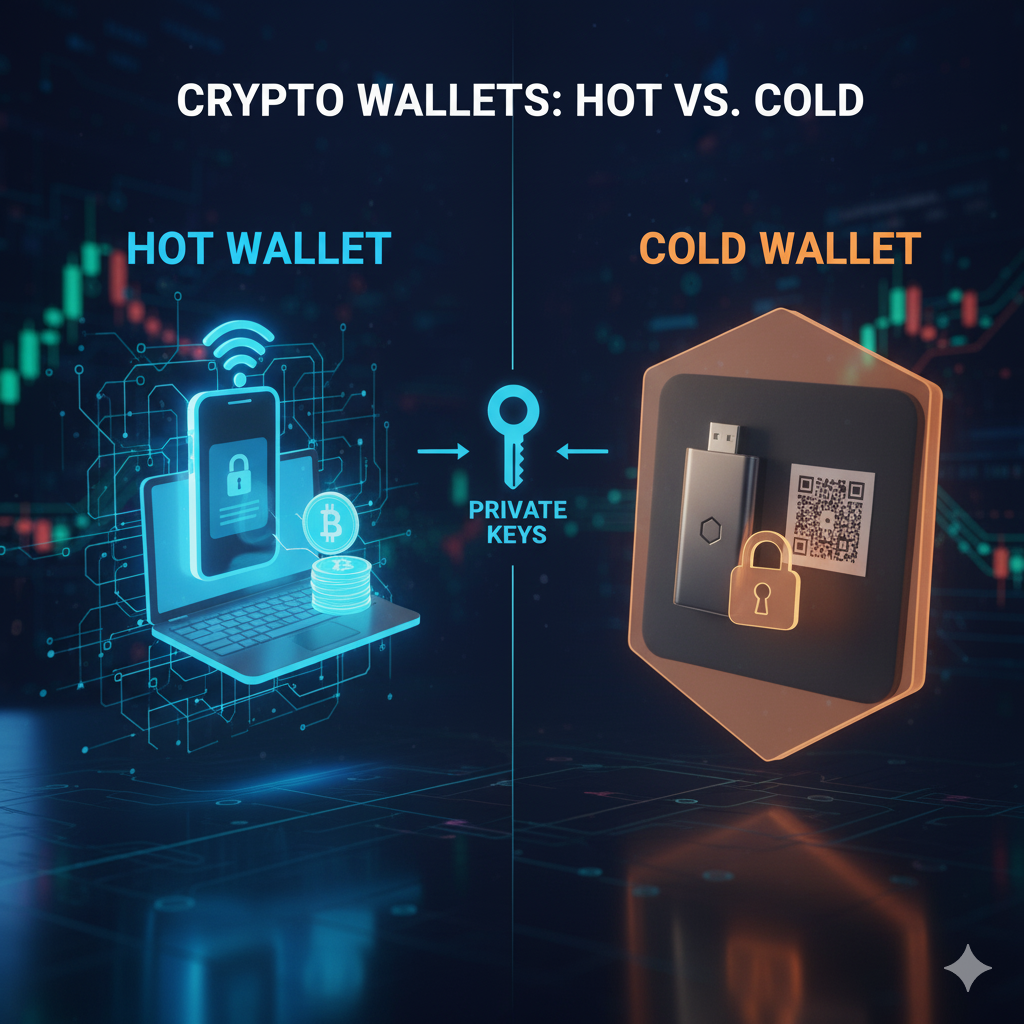
Understanding Crypto Wallets: Hot vs. Cold
Your crypto needs a home. This guide explains the different types of wallets and how to choose the right one to keep your assets safe.


Understanding Crypto Wallets: Hot vs. Cold
A crypto wallet is a digital wallet that lets you store, send, and receive your cryptocurrency. It doesn't hold your money like a real wallet; instead, it holds your private keys—the secret passwords that give you access to your coins.
There are two main types of wallets: Hot Wallets and Cold Wallets.
Hot Wallets
What they are: These are software wallets that are connected to the internet. They can be mobile apps, desktop programs, or browser extensions.
Pros: They are very convenient for making quick transactions and are great for traders who need easy access to their funds. Most are free to use.
Cons: Because they are always online, they are more vulnerable to hacking and theft.
Best for: Storing small amounts of crypto that you plan to use or trade regularly.
Cold Wallets
What they are: These are physical hardware devices (like a USB stick) that store your private keys completely offline.
Pros: This is the most secure way to store your crypto. Since they are not connected to the internet, they are safe from online hackers.
Cons: They are less convenient for quick transactions and you have to buy the device.
Best for: Storing larger amounts of crypto for the long term (a strategy known as "HODLing").
The Golden Rule: For the best security, keep most of your crypto in a cold wallet and only keep a small amount for trading in a hot wallet.
The Ultimate Guide to Keeping Your Crypto Secure
Provide a general summary of the services you provide, highlighting key features and benefits for potential clients.


In the world of crypto, you are your own bank. This means you are responsible for keeping your money safe. Here are the most important steps every beginner must take.
Use a Strong, Unique Password: For every crypto exchange you sign up for, create a long and complex password that you don't use anywhere else. A password manager can help you with this.
Enable Two-Factor Authentication (2FA): This is a second layer of security. Even if someone steals your password, they can't log in without a special code from your phone. Always use an authenticator app (like Google Authenticator) instead of SMS texts, as phone numbers can be hacked.
Beware of Phishing Scams: Scammers will send fake emails or messages that look like they are from a real crypto company to trick you into giving them your login details.
Never click on suspicious links.
Always double-check the website address to make sure it's the official site.
Remember: A real company will never ask for your password or private keys.
NEVER Share Your Seed Phrase: When you create a crypto wallet, you will be given a "seed phrase" or "recovery phrase" (usually 12 words). This is the master key to all your crypto.
Write it down on paper and store it in a safe, secret place.
Never store it on your computer or as a photo on your phone.
If you lose it, your crypto is gone forever. If someone else finds it, they can steal all your crypto. Treat it like your most valuable possession.
